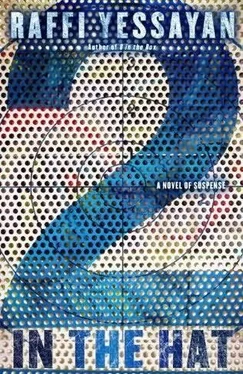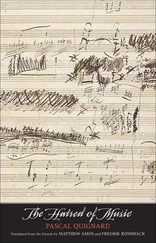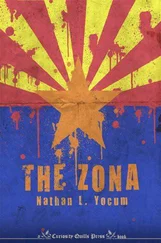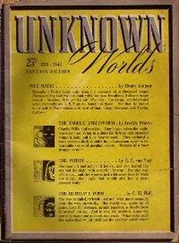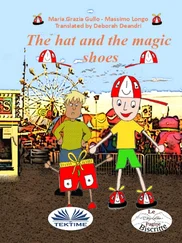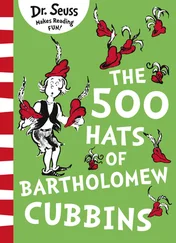It bothered Alves not to tell Marcy. Despite their recent problems, they had a strong marriage. They trusted each other and kept no secrets. He couldn’t think of any other way to put it. They knew each other at the core.
The shower stopped and he could hear Marcy singing “Winter Wonderland.” Down the hall, he could hear the twins giggling. Slowly, things would return to normal. It would be great to sit in the stuffy church, go through the paces-up-down-kneel-stand. Great to offer a silent prayer that his family seemed to be coming through the horror of the past few weeks. His wife was humming, his children were outside the bedroom door, arguing over which one of them got to turn the doorknob. In that peaceful moment of thankfulness, a thought came to him.
How do you find out who a man really is?
Simple enough.
You go talk to the woman.
Wayne Mooney knew he was ambitious, trying to make the run from the Common to Franklin Park, taking the scenic route along the Emerald Necklace. It had to be five miles, maybe closer to seven or eight. A gorgeous Sunday afternoon in late September might not have been the best time for him to make the journey. People were everywhere, with kids in strollers, on bikes, riding Razors, and those sneakers with the wheels. It was a freaking obstacle course.
The killer wouldn’t be setting up his couples now. He would wait until dark, during the quiet time, somewhere between midnight and four in the morning. Any earlier, he could run into people coming home from a night out. Any later and he’d likely be spotted by some early bird runner, a newspaper delivery man. Mooney needed to talk to the Commissioner about borrowing some bodies from the Strike Force, setting them up at strategic locations around the Necklace. But which locations?
The killer had started out at the Fens. He’d skipped the Common, the Public Garden and Commonwealth Mall. Why? Too wide open, heavily populated with the homeless, runaways, and the elderly. Then he goes from the Fens to the Riverway. Next stop Olmsted Park, where Mooney was right now, where the MDC skating rink used to be.
Then he stops killing for ten years. Logically, he should pick up where he left off. Jamaica Pond should be next. Sure, there are houses around the perimeter, but there are still secluded spots that would create beautiful backdrops. But he skips the Pond and starts working from the other end of the Necklace. Why? Why go to Franklin Park then the Arboretum? Why start working back in the opposite direction?
As Mooney jogged down the hill toward the Jamaica Pond, he saw the boathouse, some of the sailboats already tipped over in neat lines, in preparation for winter. He saw the groomed walking paths, the woods surrounding the pond, the thick shadows cast on the little spans of neat grass. This had to be the next spot. Besides the risky spots near the Common, Jamaica Pond was the one Jewel missing in the killer’s Necklace. This was where the killer would come next.
Michael Rogers felt something warm and sticky on the ground under him. His legs were useless and it hurt to use his arms. His insides were messed up pretty good, otherwise he wouldn’t be tasting blood in his mouth, coughing it up from his lungs.
His legs had gone numb the second he heard the shot. If he had only seen the van coming down Walnut. He’d gone behind that thorn bush to take a leak. When he stepped back under the street light, the van was parked not ten feet away. The sliding side door was already open. Funny thing, he hadn’t heard it slide. And the interior lights weren’t lit. Right away he knew something was wrong, but he hadn’t had time to run. No time to reach for his toast. It had happened so fast.
The first shot tore into his gut. He felt the burning in his back and belly, but nothing else. Once he hit the ground, he was useless.
The dude that got out of the van had a dark hoodie drawn tight around his face, black gloves and jeans. Maybe dude was one of Tracy Ward’s crew, maybe one of Ellis Thomas’s cousins. Payback. But he couldn’t make out anything familiar about him. Not even his walk.
Michael Rogers wanted to see his face. He tried to tell the shooter, but the words wouldn’t come out. Only choking and more blood. He tried to gather enough saliva in his mouth to spit, but he couldn’t. He wasn’t afraid to take chrome to the dome. But he wanted to see who the shooter was first.
Dude stood over him for what seemed like the longest time before he took the heater out of his waist and aimed it down at his head. Then Dude opened up his hoodie enough so the street light lit half his face.
Michael Rogers nodded.
At least he had an answer.
Figgs spotted something. A small shiny object threw back the light of his flashlight. He pulled on a pair of latex gloves and knelt in the mulch groundcover of the playground. Michael Rogers was lying ten feet away in this quiet corner of Mothers’ Peace Park. Ironic. What mother would be at peace knowing her kids were playing here? At night, this kiddie playground was the most dangerous area of the park. Surrounded by tall shrubs and isolated from neighbors by an old church on one side and a school across the street, it offered the perfect seclusion necessary for drug dealing.
Aside from the first responders who found the body, no one had been in or out of the playground. Figgs had ordered everyone to stand by while he made a cursory walk-through. He reached forward and picked up the object. A shell casing:.40 caliber. He placed it back down where he had found it. His knee popped as he stood up: another sign of aging.
Figgs made his way toward the patrol supervisor from District B-2. He motioned toward the broken street lights. “We need the lighting crew out here. Ballistics, too. Sergeant Stone, if you can get him.”
Michael Rogers lay on the mulch, eyes staring skyward, a dark bullet hole in his forehead. The blood pooling beneath him was thick and glistening. Another mother had lost another son. Another mother’s life would come to nothing but grief here in what was supposed to be a place of healing.
It was almost noon on Monday before Connie entered the main office of East Boston High, flashed his badge, and asked to speak with the headmaster.
The weekend had been productive. He’d spent time in his basement going through the two archive boxes that made up Commonwealth v. Richard Zardino. Police reports, grand jury minutes, trial transcripts, motions for new trial. Everything.
Zardino had been set up good. The prosecution had a single witness who testified that Zardino had murdered a local thug. The witness had a bad record, and that came out at trial. What didn’t come out was that he was an FBI informant who caught a break for trafficking guns and drugs. The witness had to have been looking at thirty years, on a good day. To give him a break on a serious case, the feds needed something big in return. Information that helped solve a murder was good. But testifying for the prosecution at a murder trial was winning the Triple Crown.
When the information became public, a judge allowed Zardino’s motion for a new trial. The DA decided not to prosecute the case and Zardino was free. Since he’d been exonerated, his name would not appear on a list of parolees from the DOC.
That’s why Mooney and Alves had overlooked Zardino as a suspect.
He’d returned the files to Jason Reece early enough, but it had been almost ten o’clock before he reached his contact at the School Department. The power of another grand jury subpoena, and he had records showing Zardino’s school assignments from elementary through high school. And he’d confirmed that the first two victims hadn’t attended the Boston Public Schools.
Читать дальше
